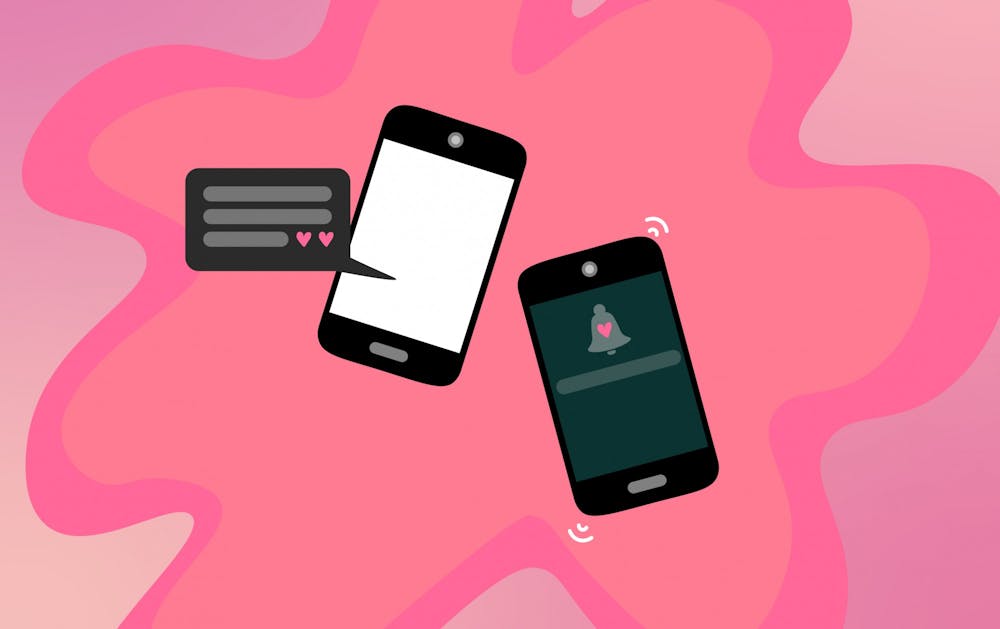The Relationships and Technology Lab at ASU studies how digital advancements transform the way people connect, and explores the potential for new interpersonal technologies.
Liesel Sharabi founded the lab in 2021 and is an assistant professor at the Hugh Downs School of Human Communication whose work focuses on online dating sites and mobile dating apps.
"I think that for a lot of people in my generation, our early childhood experiences were very much shaped by the divorce boom," Sharabi said. "I've always been really obsessed with what makes relationships work, and if there is any way that we can intervene to help people make better decisions about partners."
Part of this involves understanding why dating app users see the accounts that they do. Early online dating sites would match people based on the preferences they listed on their accounts. Today, dating apps use collaborative filtering algorithms, which Netflix and Amazon use to recommend movies based on watch history. Similarly, dating apps will suggest profiles based on a person’s previous interactions and matches.
"A lot of people don't really realize that apps like Tinder are using an algorithm. They think that it's just entirely based on location, and it is to a degree, but there’s more going on there," Sharabi said.
Sharabi said that if a dating app user consistently sees the same person, it would require swiping on different kinds of people for the algorithm to change. "If you don't realize that is how the algorithm is serving up those recommendations, you might get frustrated and feel stuck with your options," she said.
Tinder was one of the first apps to introduce the swiping mechanism, and it was designed to resemble a deck of cards. It's a game; to keep playing, you swipe left, and to match, you swipe right.
"When you swipe and you match, that's how you win. That's the gamification of this; you forget that you are doing the hard work of dating, and it feels like you're just having fun," Sharabi said.
Dating apps are still mainly text-based, but Sharabi argues that technology has evolved past that, and there are better ways to meet and interact with people online. Using virtual reality is one way to make the experience more organic and comfortable.
"Right now, we're having a study where we're looking at whether virtual reality has an impact on dating experiences. So we're putting people in virtual reality, and they have to meet each other on a blind date," said Marco Dehnert, a communication graduate student and a doctoral student in the Relationships and Technology Lab.
The Lab's Dating in Virtual Reality research project is also a collaboration with Counseling and Counseling Psychology at ASU by using Datingverse, a virtual reality date coaching program.
While dating apps may be designed like a game, the partners people are finding through their services are serious. The Pew Research Center finds that only 12% of Americans that met through online dating are married or in a serious relationship, and at the Relationships and Technology Lab, Sharabi is researching the long-term effects of these partnerships.
As part of her research, Sharabi performed a study where she interviewed people who were married or in a long-term relationship with someone they met on a dating app. She found that online dating provided a strong foundation for marriage and long-term relationships because it encourages people to communicate before they first meet face-to-face.
Sharabi’s study was inspired by a similar one in 2013, where it was found that people who met online were happier in their marriages and less likely to divorce.
However, online dating is far from perfect. For as many positive experiences people have on dating apps, there are just as many negative ones.
Cassandra Ryder is a graduate student in communication and a doctoral student at the Relationships and Technology Lab. Ryder's expertise is on bad first-date experiences with people who meet through online dating.
"I love bad date stories," Ryder said. "Hopefully, you form some sort of connection that will allow you to have a good first date and get to know each other, but I also feel like it’s (dating apps) a slippery slope, and people can hide more information about themselves."
As technologies continue to advance, it is important to look at the long-term effects they are having, and how future technologies can be improved.
"We have to think critically about what these apps are claiming to do, what they're doing for people, if they're helping, if they're hurting and how we can make them better. Only time's going to tell if they've been successful, but I think it's important that we start paying attention," Sharabi said.
Edited by Annie Graziano, Jasmine Kabiri and Anusha Natarajan.
Reach the reporter at aeagerto@asu.edu and follow @audrey_eagerton on Twitter.
Like The State Press on Facebook and follow @statepress on Twitter.
Audrey is a senior studying journalism and mass communication. This is her fifth semester with The State Press. She has also worked at The Arizona Republic.




